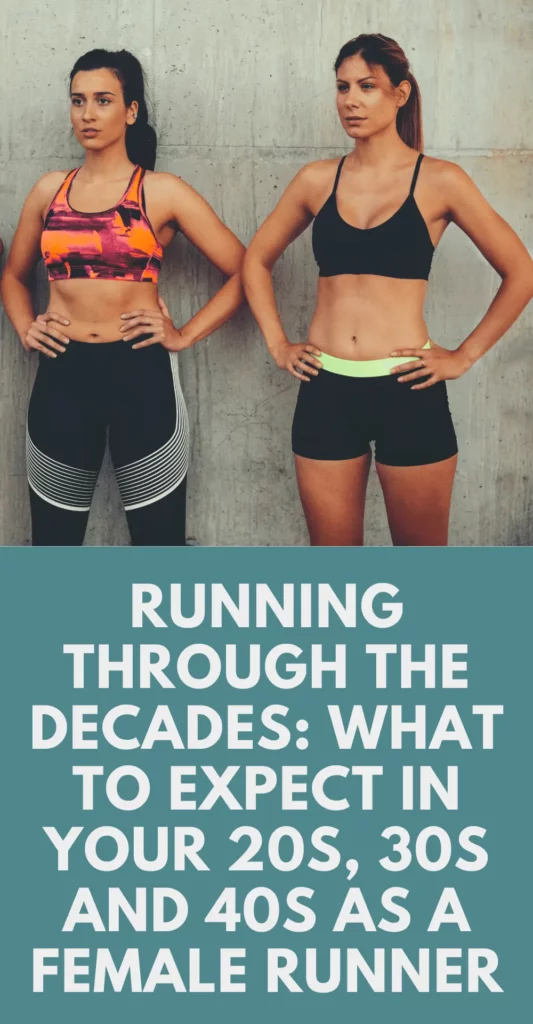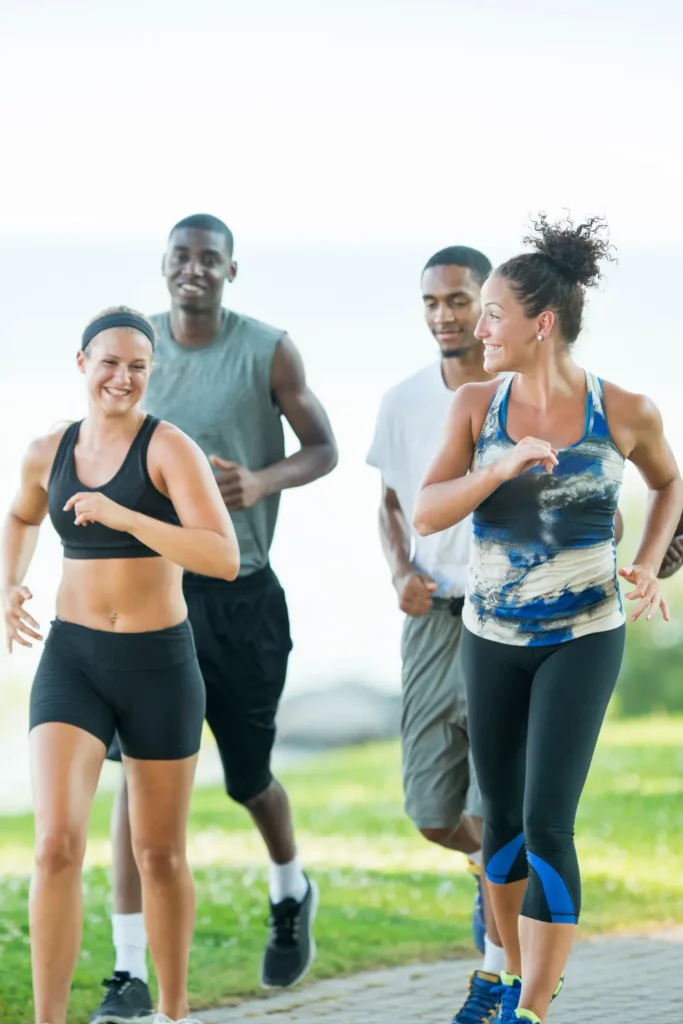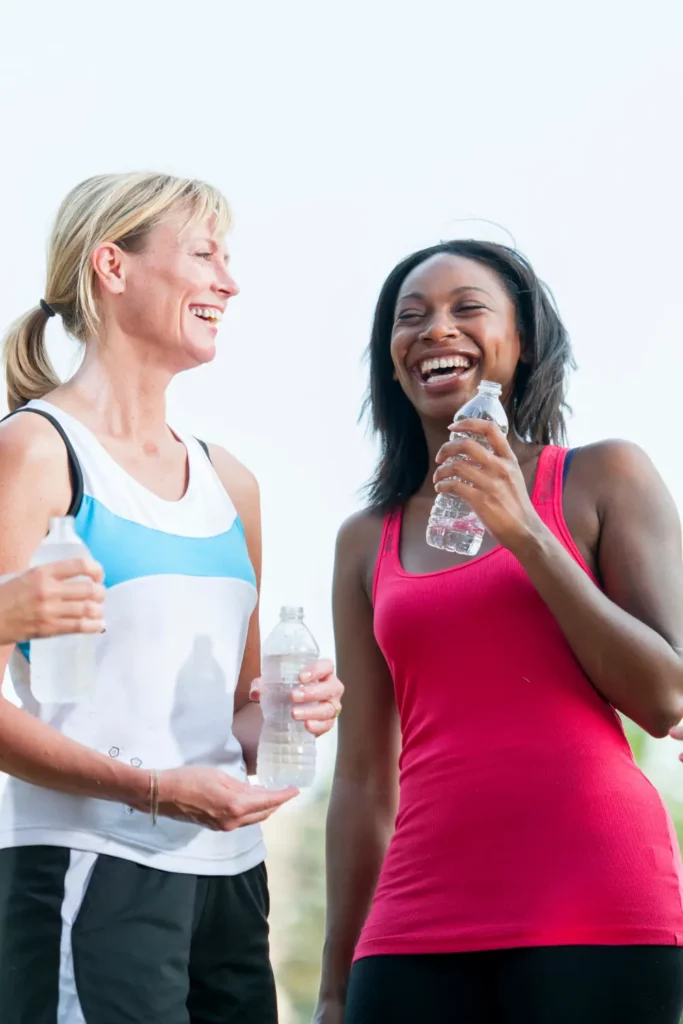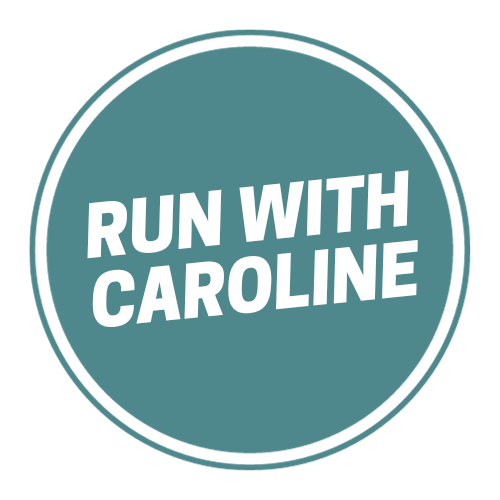Running remains a powerful source of strength, empowerment and personal growth, regardless of the decade you find yourself in.
Running through the decades in your 20s, 30s and 40s is an incredible journey of self-discovery.
I personally started running in my early 20s, and now as I (almost) approach my 40s, I can safely say it has been a journey of incredible highs and some gut-wrenching lows.
As a running coach who primarily works with female runners between the ages of 20 and 50, I understand that each decade brings its own set of challenges and rewards.
In this guide, I’ll delve into what you can expect in your 20s, 30s and 40s as a motivated and enthusiastic runner.
Understanding each decade can help you adapt and thrive in your running journey.
So lace up your running shoes and let’s explore the evolving world of running through the decades!
We’ll look at:
- The thriving 20s: Building a strong foundation
- The flourishing 30s: Maintaining and adapting
- The fabulous 40s: Balancing life and running
Ready?
Let’s get started!

Running through the decades: What to expect in your 20s, 30s and 40s as a female runner
The thriving 20s: Building a strong foundation
Your 20s are an exciting time to lay the groundwork for a successful running journey.
You will likely be in peak physical fitness between the ages of 21 and 30.
Your muscles are their strongest at age 25. At this age your physical strength will be at its peak and will stay this way for the following 10 to 15 years.
Your endurance and speed levels will also be at their best and recovery after a long run will feel like a breeze.
You will also be experimenting with different race distances, making it a perfect time for setting personal records and chasing running goals.
Your body will be in its prime for achieving milestones like running your first half marathon or setting a 5k personal best – so don’t take this time for granted!
It’s all too easy to fall into poor eating habits in your 20s, so pay close attention to your diet and nutrition.
According to weight loss expert Christopher Ochner, most women enjoy their highest metabolic rate in their late teens or early twenties.
Your genetics and activity levels play a big role here.
The more you exercise, the more calorie-torching muscle you’ll build and the higher your metabolism will be.
Running is one of the best forms of exercise for burning calories, along with high intensity workouts like HIIT.
No matter the amount of exercise that you do in your 20s, focus on injury prevention from the very beginning of your running journey.
You may feel like it’s easy to recover after a long run and hard workout in your 20s, in your 30s it will become 10 times harder so lay the groundwork now!
Don’t skip warm-ups and cool downs, and include some strength training in your weekly running routine.
Related: How to start running again after an injury: 5 tips for success

The flourishing 30s: Maintaining and adapting
In your 30s, maintaining your running habits and adapting to changes become key aspects of your journey.
Your physical fitness will remain strong, but recovery may take a bit longer in your 30s.
Listen to your body and make any adjustments to your training routine as necessary.
Be more mindful of injuries as your body may take longer to heal and recover after a hard workout.
Demands like your career and family also become more pronounced in your 30s.
Many women choose to start a family in their early 30s (in the USA, the median age for new mums has risen to 30).
The challenges of juggling exercise with a young family can be downright difficult and cannot be underestimated!
A study has revealed the true extent to which having children impacts mums’ ability to make time for exercise.
The study from the universities of Cambridge and Southampton, UK found that less than half of mothers meet the recommended levels of exercise, regardless of the age of their children.
This may not come as a huge surprise to anyone who’s experienced the round-the-clock nature of looking after little ones.
As a new mother, your body will have gone through pregnancy and childbirth which has a huge, profound impact on your body.
You will also continue to deal with your menstrual cycle in your 30s.
According to the NHS, period pain (dysmenorrhoea) can often get worse with age, especially if you have conditions like endometriosis or fibroids.
Heavy menstrual bleeding, bloating and painful cramps can all have an impact on your exercise routine.
The key is to find a routine that works for you and your menstrual cycle.
The bottom line? Learning to balance your running alongside your health, family and life’s commitments like is key to ensure you keep running week in, week out.
Incorporate cross training, strength training and stretching into your routine to adapt to your changing body.
And embrace the experience and wisdom you’ve gained from your exploits on and off the running track so far!
Related: Is running good for you? 12 amazing benefits of running for the body and mind

The fabulous 40s: Balancing life and running
Entering your 40s brings new challenges and opportunities for growth as a runner.
You may notice greater physical changes in your 40s – namely in muscle mass and metabolism (your metabolism slows as you age).
Maintaining muscle and bone density is really important during your 40s – it’s vital to keep including cross training and strength training in your routine as your body evolves.
Early menopause and the menopause can also have a huge impact on your health and hormones in your 40s.
Menopause should not be viewed as a sign of impending decline, but rather a wonderful beginning of a good health programme including lifestyle changes in diet and exercise.
Research indicates that postmenopausal women who engage in regular exercise benefit by maintaining a healthy body, bone density levels and good mental health.
It really is never too late to start exercising!
The key is to start slowly and do things that you enjoy such as walking and running.
Continue to be mindful of injuries. Recovery time can be longer, so take care of your body.
Consider becoming part of a running club. The support and motivation found in a local running group or club can be invaluable!
Related: 11 things I wish I’d known before running my first 10k

Conclusion
I encourage you to embrace each stage of your running journey with enthusiasm, determination and a deep appreciation for the wonderful world of running.
Together we can continue to inspire and empower one another as we run through the decades of our lives.
Related: Essential running gear for women: Must-haves and nice-to-haves
- 5 things I wish I’d known before returning to running - March 3, 2024
- Running 20 minutes a day: Benefits + how to start - January 27, 2024
- How to run your first 2 hour half marathon - January 16, 2024

Rosalie
Monday 6th of November 2023
Help, I’m 61 and still running. Open to any advice to run forever.
Caroline Geoghegan
Monday 6th of November 2023
Wow! I have so much respect for you! What advice would you give to anyone wanting to continue running in their 60s?